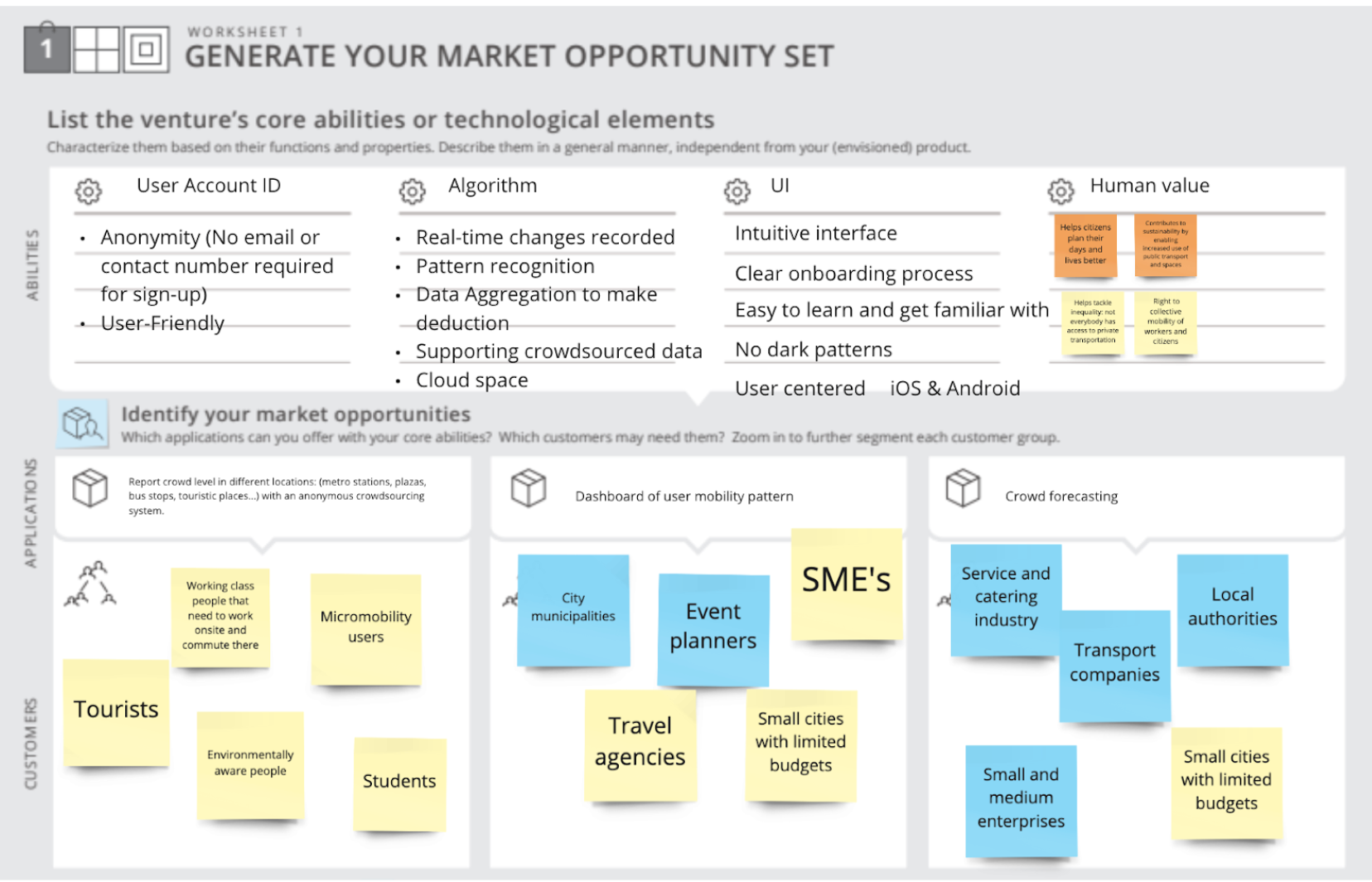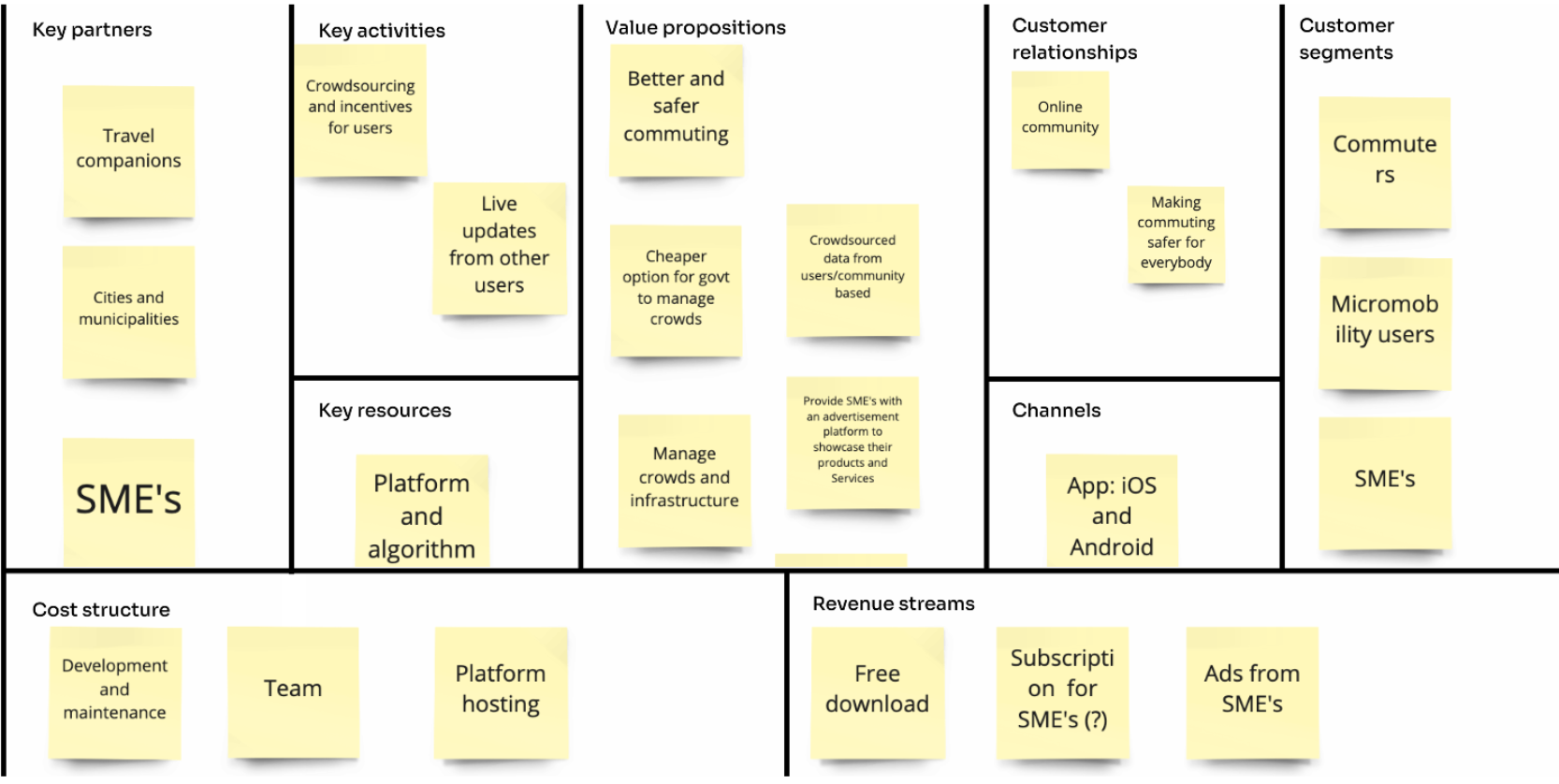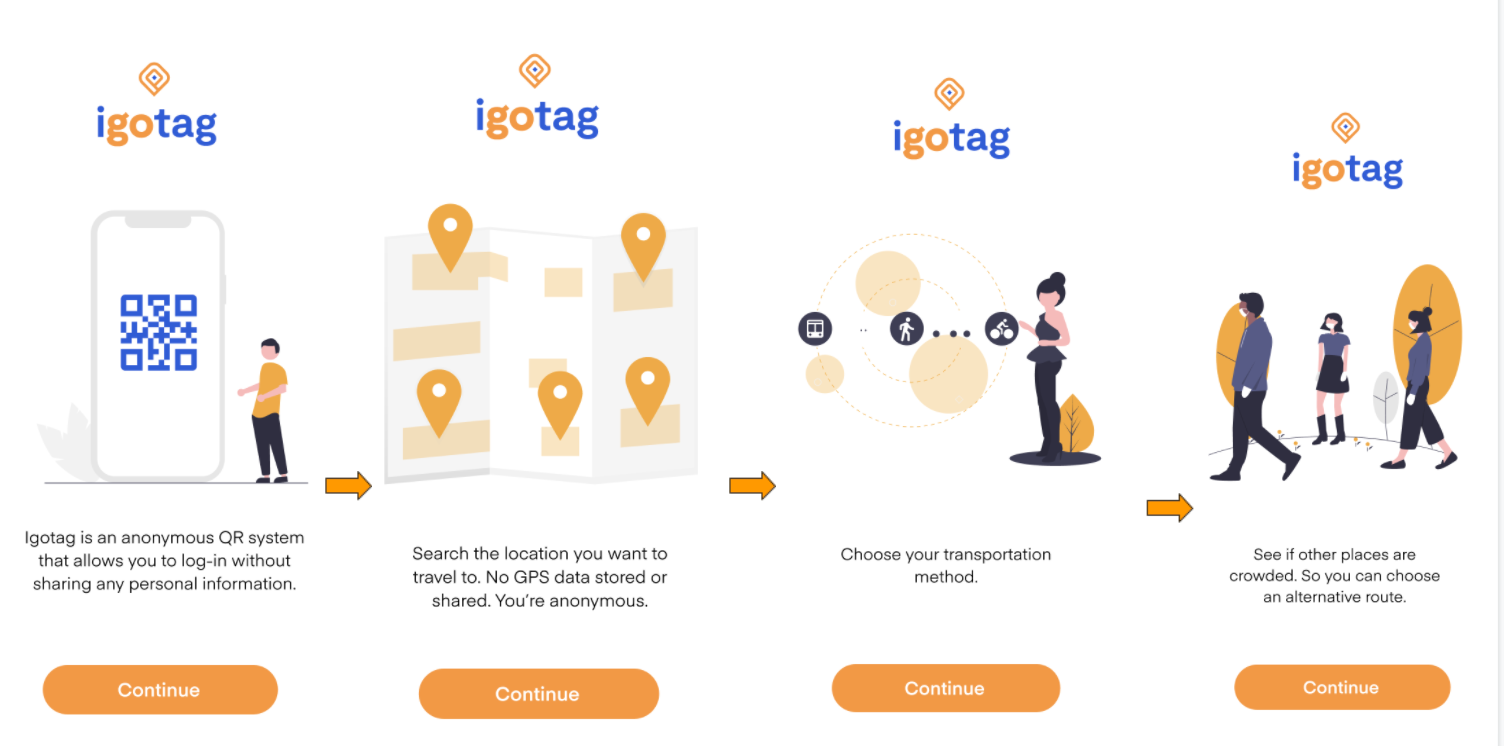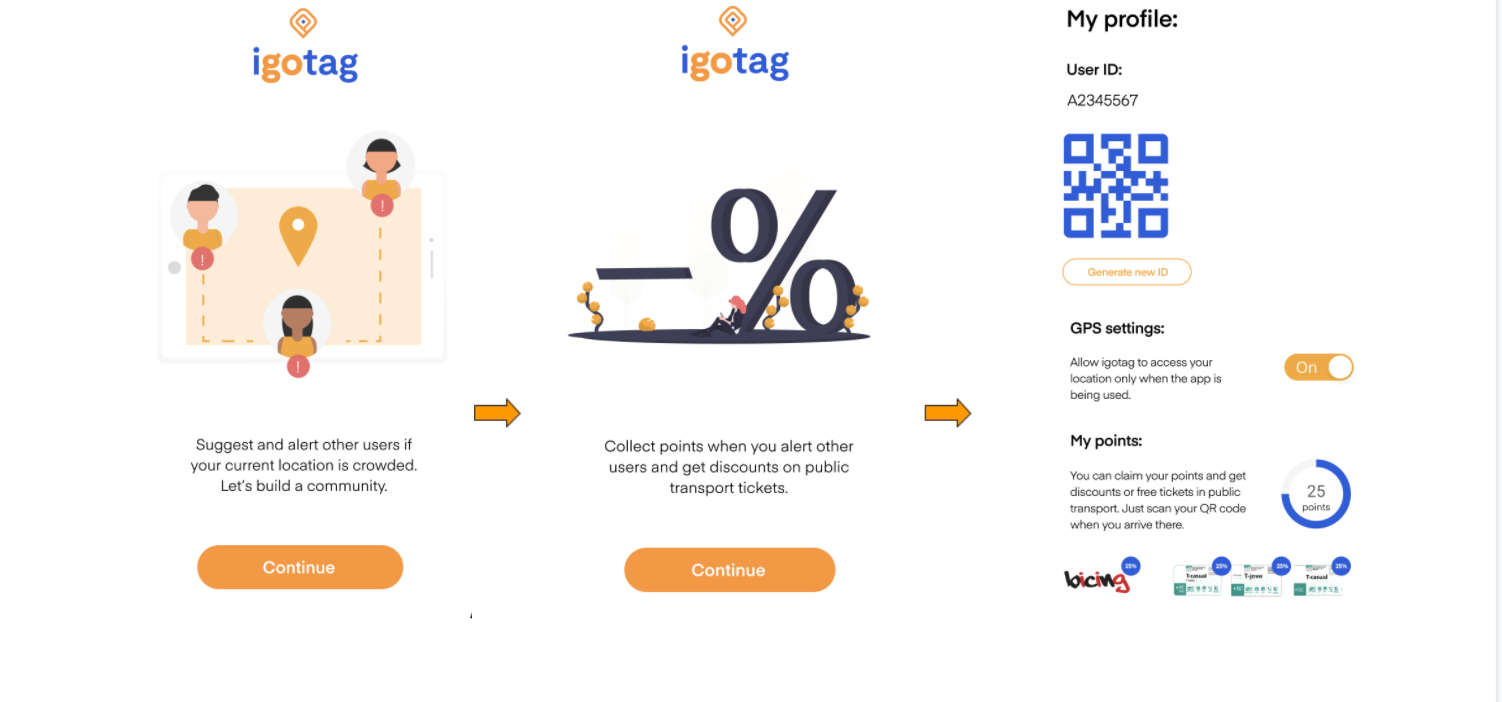Audience : Urban Mobility experts from across Europe, Barcelona City Council members
Role : Service & Interaction Designer, Design Researcher
How might we RE-DESIGN our URBAN MOBILITY SYSTEMS TO restart the economy without compromising our health, safety, and privacy?
At the height of the pandemic, as cities around the world grappled through the risk and return of their keeping citizens safe and opening up for business, there were strict lockdowns imposed. This measure not only impacted the mental health of citizens, but also wreaked havoc on small and medium-sized businesses, leaving them financially vulnerable. Additionally, as many services became digital, citizens across the globe were left concerned about the privacy of their data.
In July 2020, I remotely collaborated with a telecom engineer and a civil engineer from Barcelona's City Council to design an age-friendly anonymous identification system called igotag. The igotag system allows citizens concerned about privacy issues to anonymously make time slot reservations across popular locations in the city through a mobile application on their smart devices. The application is supported through the use of sanitizable scannable alphanumeric identification stickers and quick response (QR) codes. This scalable and affordable technology can aid City Council in managing crowds at beaches, public markets, cultural venues and more, while providing data for efficient resource allocation in this new social-distancing economy.
First Iteration
The first iteration of the product focused on public spaces and the city council wanted to explore other touch points to deploy this system as quickly as possible. To gain deeper insights into the problem, we interviewed and gathered insights from 30+ city residents from Vancouver, Barcelona, and Munich to learn about their concerns about the pandemic and how their ability to do everyday tasks have been impacted.
Conducting Remote Design and User Research
Ideating and conducting user research remotely in the midst of the pandemic was challenging but digital collaboration tools such as Mural and Miro came in handy to engage with participants who helped us narrow down our value proposition. After color-coding our conversations and developing service journey maps, a major missed opportunity came to surface: Many participants still used public transit to reach public beaches and markets and we became interested in answering:


We brainstormed a few potential interventions related to crowdsourcing data and went back to our users to test the prototypes. The testing with our research participants further revealed the following key insight:
While crowdsourcing user data is desirable, the lack of well-defined incentives is a major hurdle discouraging citizens to share information and contribute to public safety.
In this next iteration, we redesigned the igotag system to reward points to citizens for reporting crowd levels and safety concerns on public transit. The points could be redeemed for alternative sustainable and micro-mobility options in the city, such as electric scooters and bike sharing services.
The igotag system won the first prize in Citython 2020 and InnovaCity Hackathon 2020 and the proposed gamification and reward mechanisms have since been incorporated in many of the apps listed in the Barcelona City Council municipal app directory designed to serve residents and includes a wide array of subjects, such as culture, leisure, mobility, transport, tourism and other city services.

